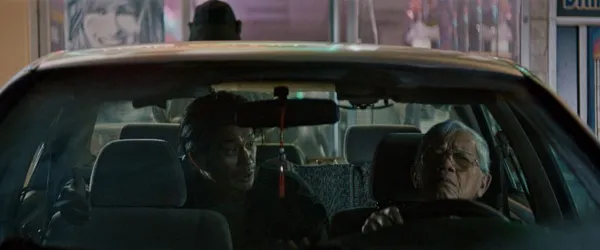 |
| Director Sing J Lee on the release of The Accidental Getaway Driver: 'I think that there's this potency of such a human story being able to be shared in today's landscape' |
Director Sing J Lee's directorial feature debut, The Accidental Getaway Driver – which had its premiere at Sundance Film Festival in 2023 – is inspired by true events that took place in Southern California in 2016. The film follows Long Mã (Hiep Tran Nghia), an elderly Vietnamese cab driver who finds himself in a frightening and misadventurous episode after he responds to a late-night call. In his pyjamas and held at gunpoint, three convicts from an Orange County jail force him to drive them to a motel, where he's held hostage. As a tense waiting game unfolds, he strikes up a surprising connection with one of his captors (Dustin Nguyen).
Lee's previous credits include the 2011 short film, First The Bird Fell, about an encounter between a journalist and champion runner in 1960s Britain, and music videos for artists that include Pharrell Williams, Alicia Keys and Halsey.
In conversation with Eye For Film, Lee discussed how his creative intentions were driven by a desire to humanise his cast of characters, and create an intimate odyssey for his audience.
Paul Risker: A feature debut is a huge milestone in a director's career. With that in mind, how do you look back on the experience of making The Accidental Getaway Driver?
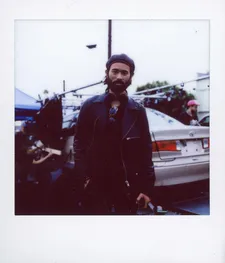 |
| Sing J Lee: 'You're making a decision to be subjective about something and the beauty of that is the trials and tribulations are what humanises what you focus on' Photo: Andy K-D |
Sing J Lee: It's a very interesting question because the journey from when I first read the article to shooting it and taking it to Sundance, was, all in all, a very short time – just over two years. Sundance was this beautiful culmination of those frantic few years and then there was everything that happened afterwards. So, it was an interesting time, and I really do believe that everything happens as and when it should, and now, we get to celebrate the release of the film coming out on the 50th anniversary of the fall of Saigon.
What a complicated identity for especially third culture individuals and generations from all enclaves, and obviously, the Vietnamese-American generation. I think that there's this potency of such a human story being able to be shared in today's landscape. It fills me with gratitude, and, I don't know, this excitement to be sharing such a human story in a year that has many layers as to why it would be so relevant. I'm just excited to continue to forge on with this blueprint of human stories wrapped up in familiar genres. So yeah, I couldn't be more excited.
PR: One doesn't have to look far to see how “the other” is dehumanised, and yet, migration has, and continues to, shape the world. When you premiered The Accidental Getaway Driver at Sundance, it was during the Biden Administration, and its release was at the beginning of Donald Trump's second term in office. How the film relates to its societal, cultural and political reality has undergone a significant shift.
SJL: It's a poignant and observant thought that comes from deep observations in yourself. It touches on a lot of things. First of all, in any time of conflict or friction, culturally or societally, art is always the beacon for social observation. The power of art and cinema, above all, is that we recognise ourselves in strangers. Those strangers could be from any background that you may feel far removed from yourself. For example, with this film, there are these four fragmentations that make up this broken portrait of what belonging means – what it feels like, and what redemption and family feel like. This is transcendent and this is something that everybody can relate to in many different ways. That's the power of a film like this in a time like now.
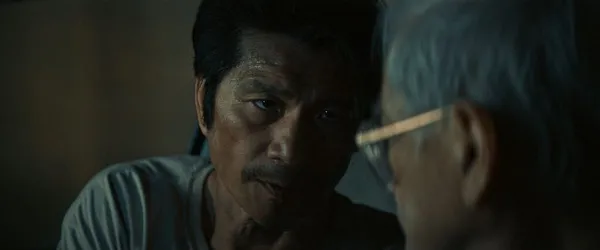 |
| The Accidental Getaway Driver director Sing J Lee: 'People are shaped by their environments or circumstances or by inequity' |
[…] This film is inspired by a true story, and I'm sure at the time, the media were portraying it as a former prisoner of war who had been abducted by three armed fugitives. Now, you have a certain sense of what that might be, but by exploring it, we have to remember that nothing is created in a vacuum. People are shaped by their environments or circumstances or by inequity. And some people will make decisions or choices that other people are fortunate to never have to make.
When you are able to humanise and portray characters from a more tender and fragile place, then you may be able to understand what you would do in a situation like that. As I said, themes are so universal and the power of what we try and do will hopefully help humanise the characters you see, and the strangers you cross paths with day-to-day.
One of the most important aspects of this story that drew me in was Long Mã, the central character, reminded me of my grandmother, who spoke a different dialect to me. You grow up around a lot of different people and the best of us may pass somebody by on the street, and if we can't communicate with them, even with the best of intentions, we will have a preconceived or maybe a prejudicial notion of who they might be. You don't realise that they can't communicate to you the symphony of life they carry within them, and if only you could find a way to connect, you'd understand.
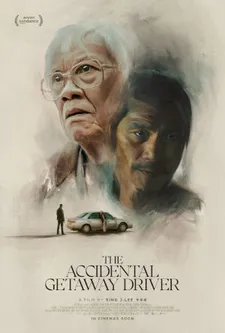 |
| Accidental Getaway Driver - poster |
PR: If I were to choose a word to describe this film, it would be “journey”. What's striking is how you craft this emotional experience, respecting the story and characters enough to step back and allow the latter to communicate with the audience. It reveals your humility as a filmmaker to disappear behind the film.
SJL: It ties into both personal life experience and cinema. I was born in Manchester, and I grew up in Wrexham. We were one of the only Chinese families in our area at the time. Naturally, in an interstitial space between cultures, what I guess you could define as third culture identity, it shifts a lot within you. When you're young, it comes out as explosive because you're trying to find your own voice, and at the same time, you become a wallflower and an observer to both sides of life. In my case, my parents are from Hong Kong, so you're neither really British nor Hong Kongese either. You're this in between and so you're shaped by observation.
At the same time, I grew up enchanted by two cultures of cinema – the Asian New Wave, whether that's from Hong Kong, Taiwan or Japan, and the European New Wave, with British kitchen sink realism. The beauty of this cinema is that at its heart, yes, it's a social commentary, but they are observations of life that champion the ordinary and elevate it to something that is revered. They showed the frustration of those who may not be seen as eloquent or as privileged as others, but still have the most beautiful imagination.
So, that all forms together and as I've grown, and I've been shaped as an artist, this language is imbued within the film too. When you make a film in America, you think of New American Cinema. You think of Robert Altman or Hal Ashby. Again, there's that element there. So, you mix all these things together, and you try to create something that feels as hybridised as you are as a person and that lends itself to observation.
PR: Based on a true story, you could have chosen to make this as a documentary. I've always appreciated how a documentary even has its limits in telling the truth, and narrative fiction is capable of expressing truth in a way that a documentary would struggle to. Thankfully, these two forms aren't divided along such rigid lines as they once were, and instead borrow from one another.
SJL: You have to accept that at some point there is nothing that's truly objective, from the news to documentary to cinema to penmanship. You're making a decision to be subjective about something and the beauty of that is the trials and tribulations are what humanises what you focus on. I think it was Abbas Kiarostami who said we can never truly appreciate what's in front of us unless it's in a frame. So, what we choose to frame is so important.
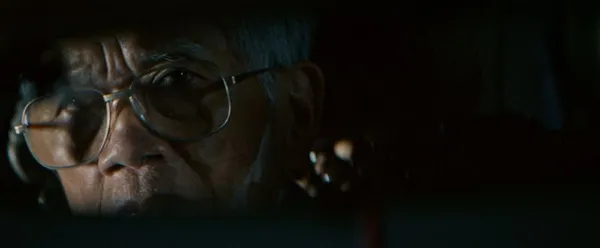 |
| Director Sing J Lee: 'Together these four characters create one whole broken portrait of belonging' |
PR: One of the other beautiful things about cinema is that a film often starts off being about the characters onscreen, but it ends up being about the audience.
SJL: What we're talking about is history and stories, and how you don't always get the opportunity to tell your own story or there are personal stories that fall by the wayside. The cinema is a beautiful place where people congregate. It's a pilgrimage and then to be able to make a beautiful and tender film that centres on characters that in real life have been marginalised, but also forgotten in cinema, who you treat with the prestige, the care and the love that other characters often get.
Then you go and watch it with strangers and I love hearing them laugh and cry together. Like you said, by the end of it, you're starting to think about yourself and that's the beautiful part of a collective experience that is cinema that we should be actively returning to.
PR: What never fails to surprise me is how stories create these powerful connections between the audience and the characters. It goes beyond suspension of disbelief to something deeper, and in The Accidental Getaway Driver, we come to care deeply about these characters, their choices, and want them to be the best versions of themselves.
SJL: Something you're kind of alluding to as well is the way that the film is bookended. You start with this portrait of a lonely old man who has isolated himself, which is intentional. It's dark and outside life goes on. By the end of the film, the journey you've been on is really an intimate odyssey. There is light in his life, and he integrates with the others outside, but at the same time, if you really think about it, from the beginning to the end, in the exterior world, nothing's changed for him really. His day-to-day life is the same, but internally he's gone through something that's transcendent, and I think that happens in real life. Every day we go through so many experiences that nobody would really fully know about, and yet we're different people.
The Accidental Getaway Driver premiered at the 2023 Sundance Film Festival. It opens theatrically in New York, Los Angeles, Orange County and San Jose on February 28th, before a national expansion on March 7th.





















